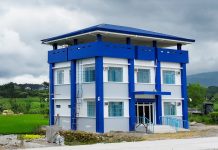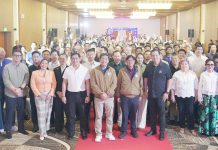TACLOBAN CITY-The Philippine Crop Insurance Corporation (PCIC) was created through Presidential Decree 1467 on June 11, 1978 by former President Ferdinand Marcos “to provide insurance protection to farmers against losses arising from natural disasters as well as plant diseases and pest infestation.”
It is designed to protect farmers against financial losses by transferring the risk to a third party.
“I believe farmers, like all other sectors, were convinced on the importance of getting an insurance to shield them from losses after the onslaught of Yolanda. You saw what happened here,” Digamon added.
Digamon said it is important for the farmers to have this assurance especially that Eastern Visayas is not only a typhoon-prone area but also prone to drought and pest infestation.
“They can easily start anew because PCIC pays for their investment. Without crop insurance where will they go? If they have a loan at the bank, we pay the bank and this will allow farmers to borrow again from the bank,” he said.
PCIC is offering a free insurance to encourage more farmers to avail of this service.
One has to be listed in the Registry System for Basic Sector in Agriculture (RSBSA), a joint project of PCIC and the Department of Budget and Management, to avail of this service.
The RSBSA is a nationwide database of baseline information of farmers, farm laborers and fishermen from identified provinces, as well as geographical coordinates of agricultural and fishery workers households.
These data are used as basis for developing programs and policies for the agriculture and fishery sectors.
The database also identifies the names of small owner-cultivators, land holders, tenants, and regular and seasonal farm workers.
Despite the free insurance, though, “penetration rate” or the ratio between agricultural insurance premium volume and agricultural GDP remains low.
“Our penetration rate in rice is around 10 percent,” says Digamon without providing the exact data or an explanation on how the figure was arrived at.
He said this is a low figure considering that the insurance offered to farmers is for free. He explained that farmers who are not listed in RSBSA will have to pay the full premium.
“This is one reason why a farmer would not apply for an insurance. They would rather spend the money to buy food and other needs than pay the premium,” he said.



